What you can do right now to help the climate
As the COP25 climate conference wraps up with another set of national pledges to reduce carbon emissions, what can individuals do to help? Four Swiss research institutions and energy companies weighed in.
Fly less, stay longer
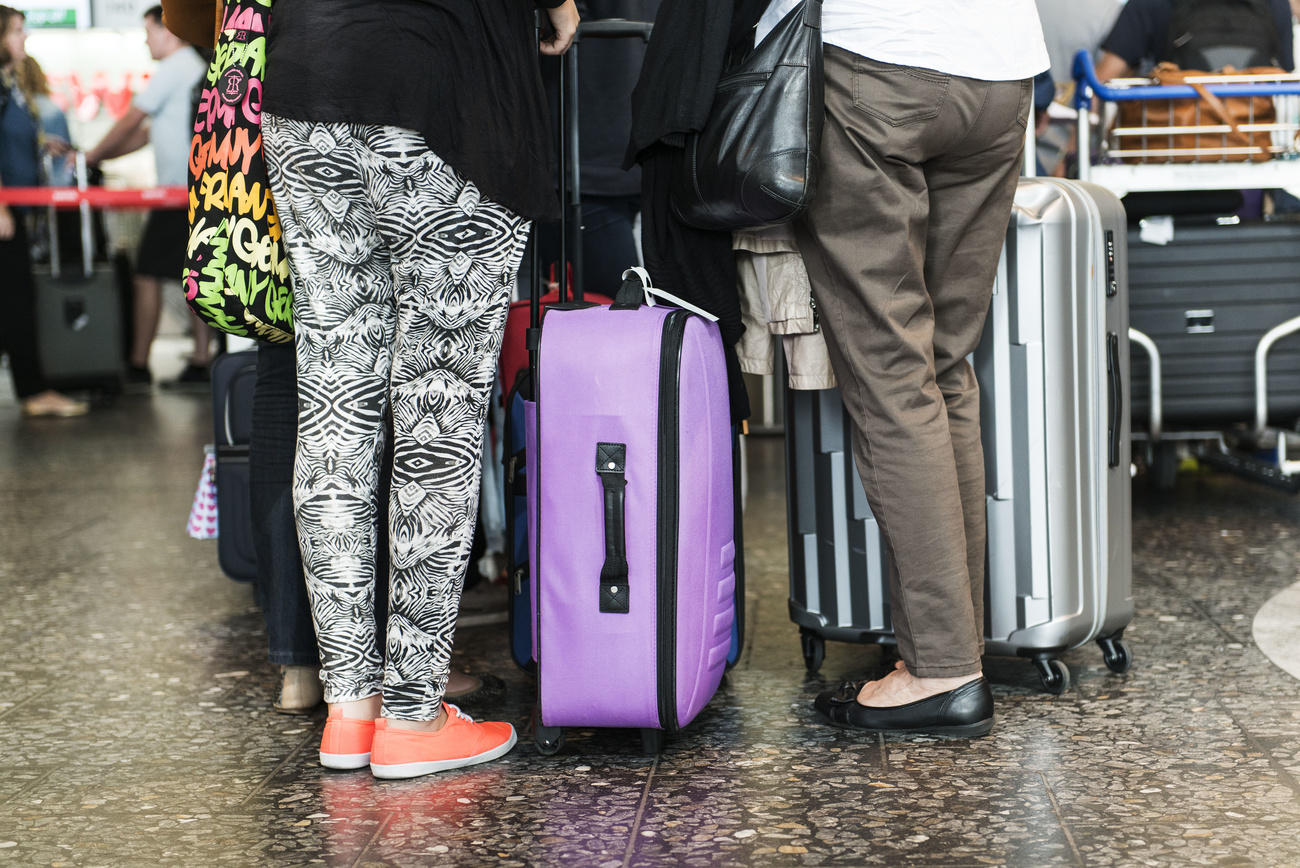
“The single most important individual contribution of Swiss people to climate change relates to flights. Swiss people are extremely active travellers, thus ‘flying less’ can make a big change in the individual climate footprint,” says Nino Künzli, deputy director of the Swiss Tropical and Public Health InstituteExternal link, which last week hosted a two-day symposium on the effects of climate change on health.
The importance of reducing air travel is echoed by the CEO of myclimateExternal link, a Swiss foundation that promotes emission-reducing climate protection projects. Its online calculator helps people figure out their carbon footprint and suggests how much they could donate in order to compensate.
“Flying is not a human right. It is a luxury that we gave gotten used to in Switzerland and other countries,” says Stephen Neff, pointing out that a round-trip economy flight to New York generates two tons of CO2 – for which myclimate recommends contributing CHF58 ($59).
“If the train is not feasible – say for a family of four to Mallorca – then take the bus or car and ferry,” he says, urging people to re-consider where, how and whether they need to travel. “When flying, extend trips from a few days to a few weeks,” he adds.
Turn down the heat

Generations ago, people wore extra layers not just to stay warm, but to reduce heating costs. Now it’s clear that the issue goes beyond individual budgets.
“Heating accounts for almost 70% of household energy consumption. Of that, about 70% is generated by fossil fuels. This figure must be reduced as quickly and easily as possible,” says Romeo Deplazes of Energie 360°External link, a Zurich firm providing energy solutions for homes and businesses. For example, he says that his company has helped clients save over 70,000 tons of CO2 this year by increasing their use of biogas (from decomposing organic waste) and cutting their use of natural gas (fossil fuel from deep underground). Other options his company promotes are district heating, heat pumps and wood pellets.
Granted, only property owners have much control over fuel and heating systems. But everyone – including Switzerland’s many tenants – can turn down the heat.
“When it comes to the temperature of a room, every additional degree increases energy use by 6%,” says Deplazes, who suggests setting the thermostat to about 20°C in the living room, and 17°C in the bedroom. “Corridors or rooms that are only briefly or seldom used – like guest rooms – can comfortably be kept at a lower temperature.”
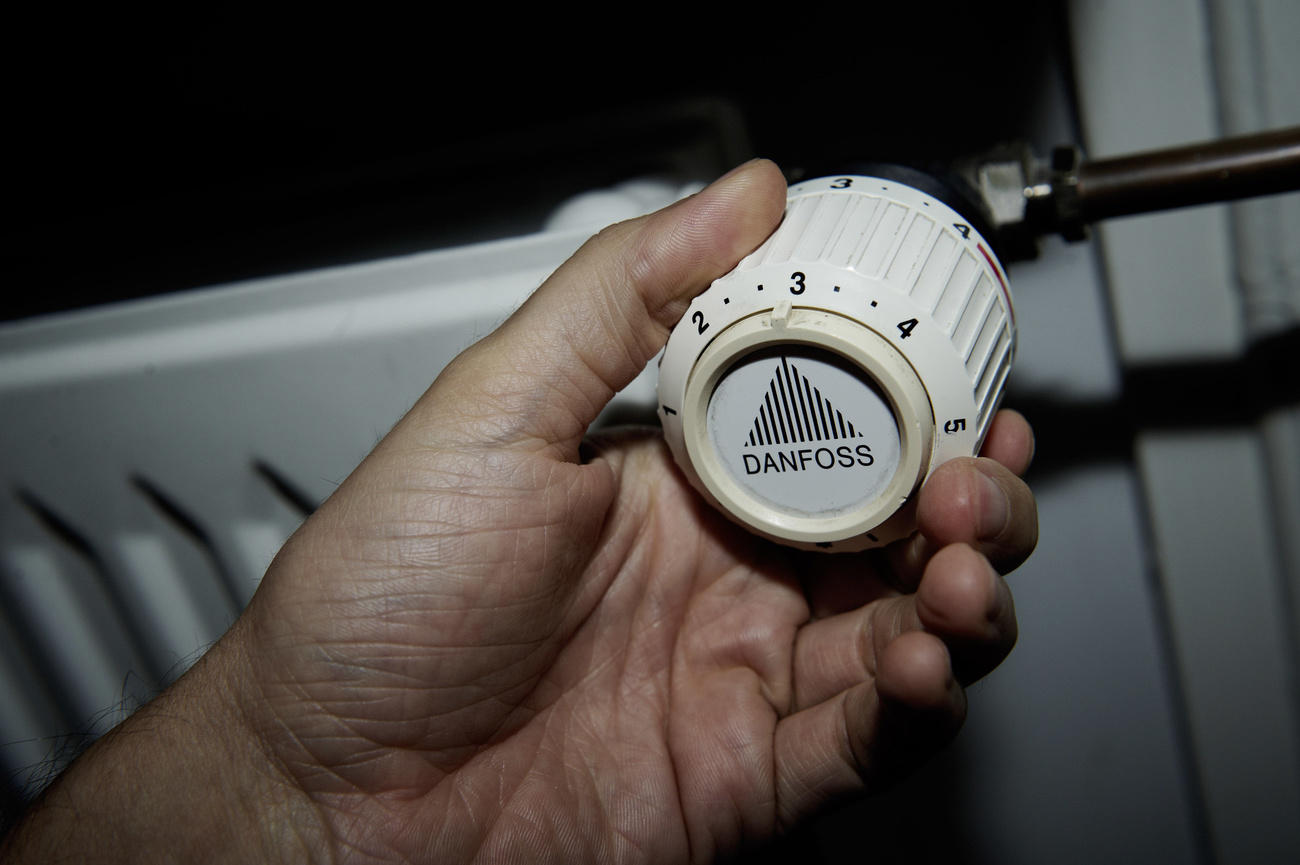
Offset the rest as a last resort
David Bresch, a weather and climate risk professor at federal technology institute ETH ZurichExternal link, repeats the need for people to “reduce energy consumption, switch to renewables and reduce transport emissions”. Individuals can also improve their awareness using the carbon footprint calculators provided by myclimate and WWFExternal link.
“We’ll experience very hard conditions even in Switzerland if we don’t do anything. Emissions need to be zero by 2050,” Bresch says. The “we” means everyone – both individuals and the government.
Swiss TPH’s Künzli agrees that it’s not enough to rely on the actions of regular citizens; strong political action and regulations are a must. Still, “from an individual perspective, it makes sense to focus on the ‘lowest hanging fruits’ we can influence”.
Neff of myclimate points out that there is no one solution that will make the problem go away. “Switzerland’s main leverage is in mobility (flying, cars, cruise trips) and in buildings (heating, cooling, etc.),” he says, adding, “As a last resort, offset what you cannot avoid or reduce. It is not the solution but only a stop-gap measure.”
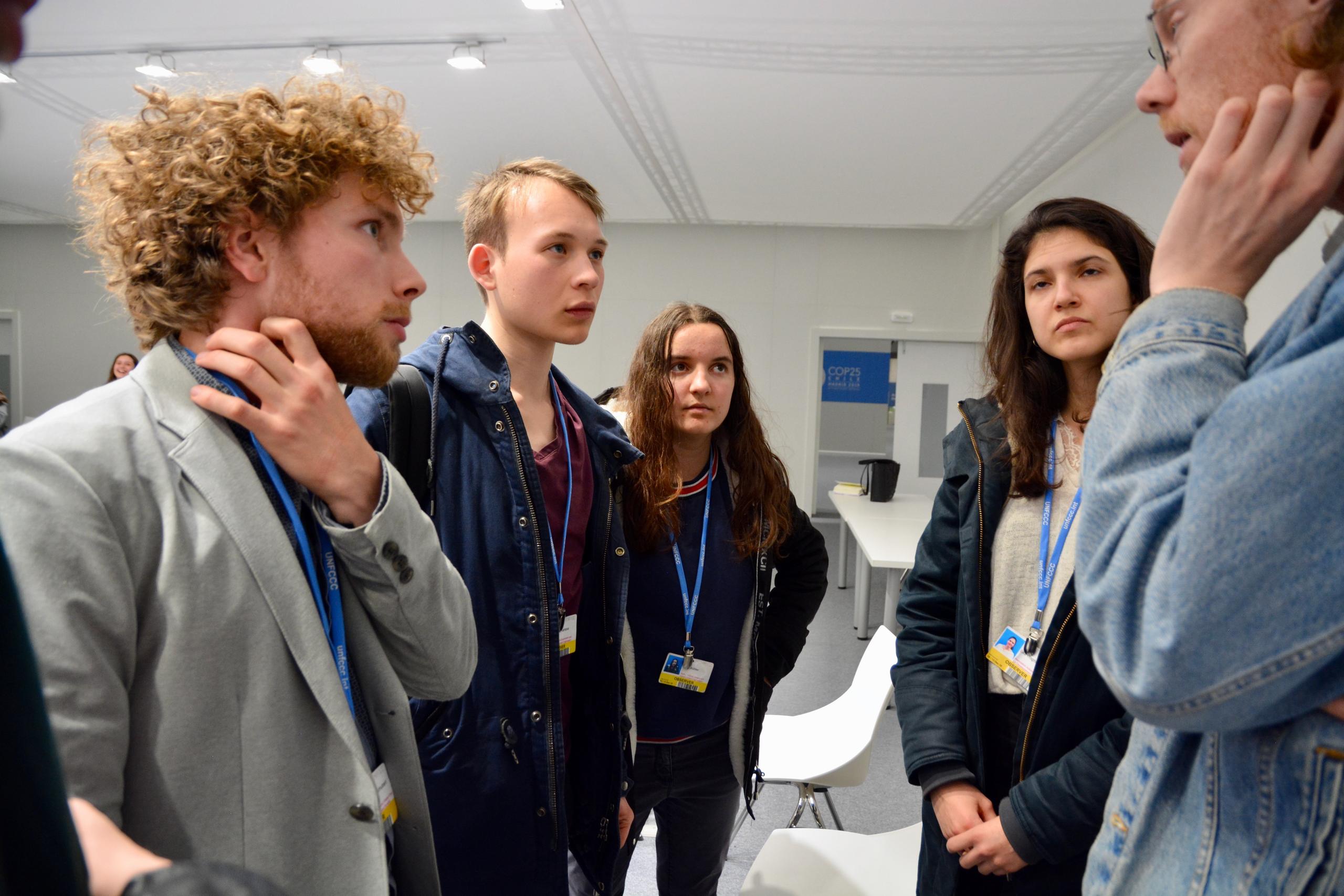
More
‘Where is the action?’ Swiss youth leaders frustrated as climate talks end

In compliance with the JTI standards
More: SWI swissinfo.ch certified by the Journalism Trust Initiative









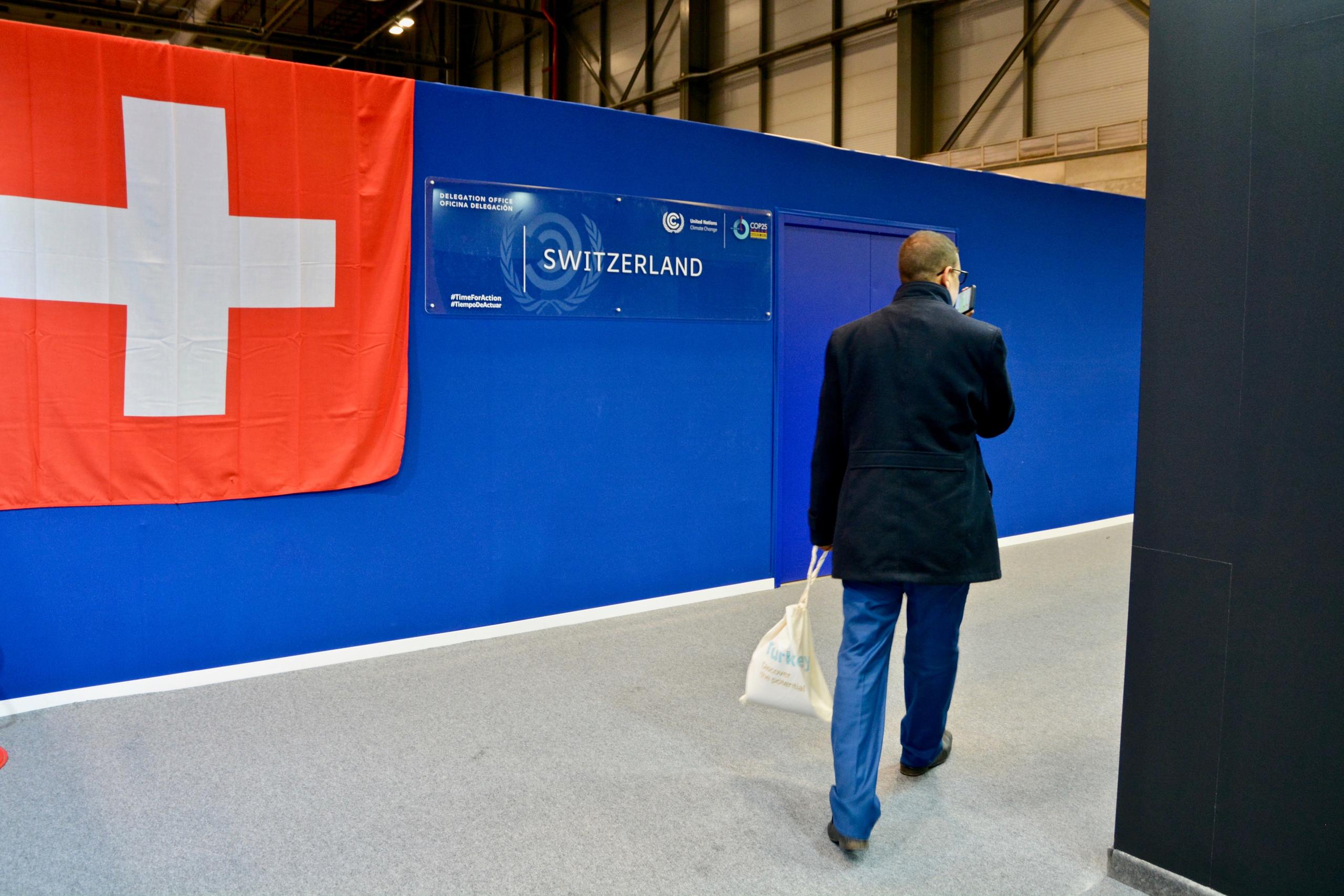

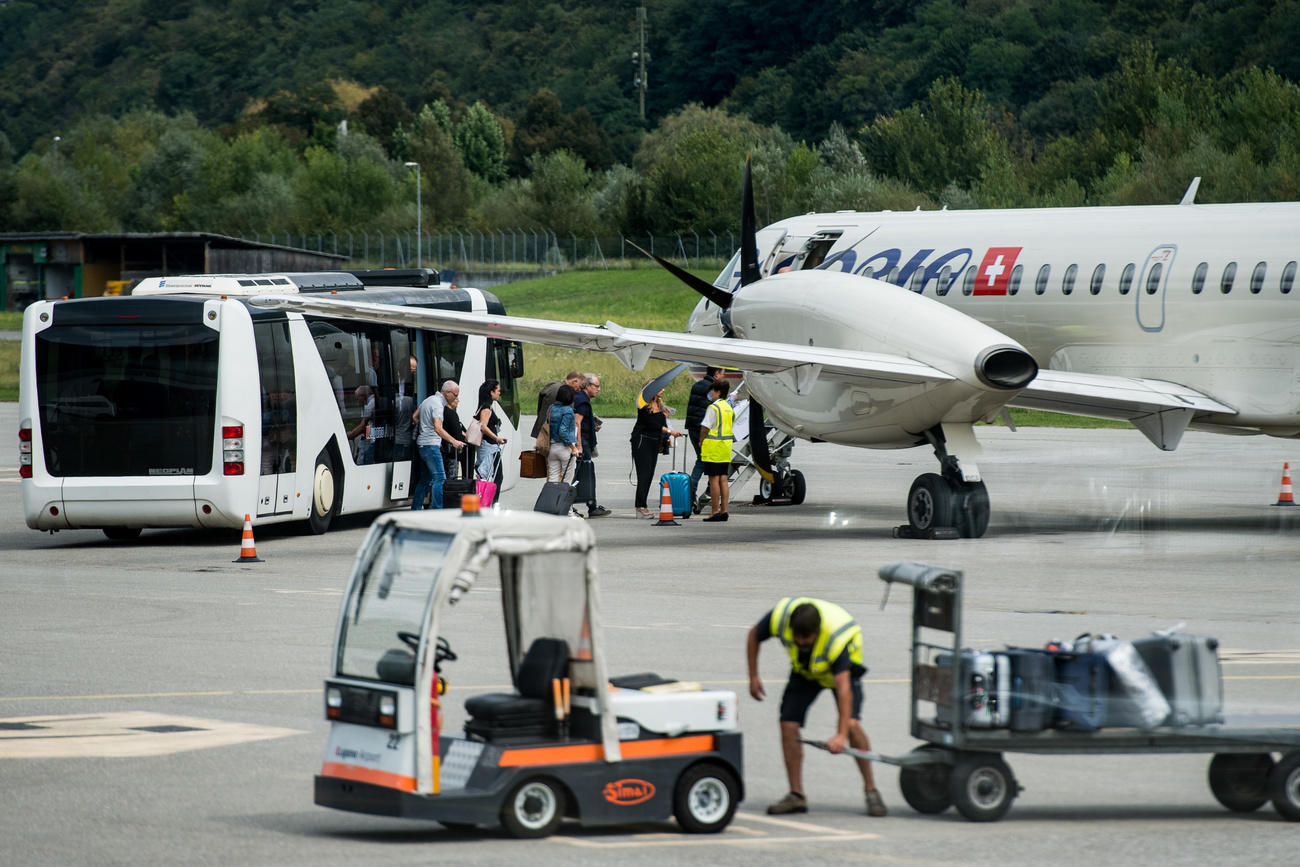

You can find an overview of ongoing debates with our journalists here . Please join us!
If you want to start a conversation about a topic raised in this article or want to report factual errors, email us at english@swissinfo.ch.